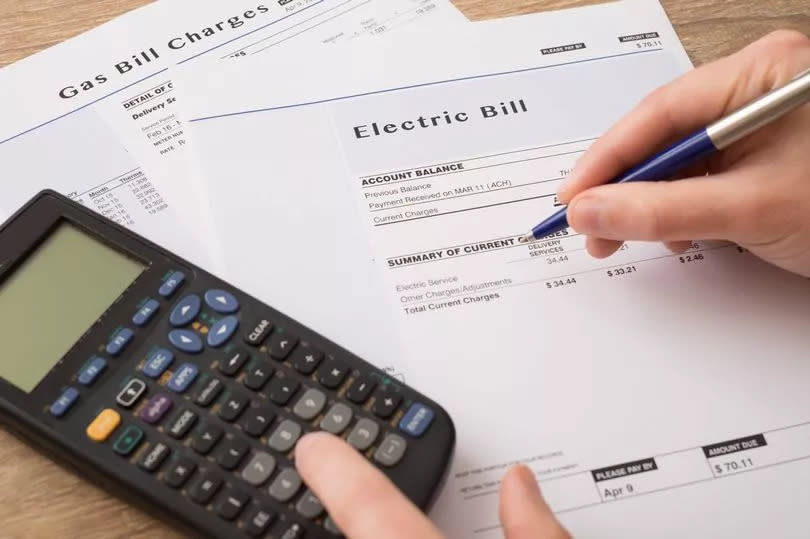'Perfect time' to check energy bills now as average household can get £210 back

Experts have urged UK households to check their energy accounts now, as many may be able to claim back hundreds of pounds in credit from overpaying their bills.
New research from Uswitch.com has revealed that the average home is around £210 in credit with their gas and electricity provider, with around 16 million households - more than half - in credit at the end of this winter. One in seven people (14%) have balances over £300, and 5% have more than £500 with their energy provider, the research found.
These figures are lower than last year, which Uswitch.com says may be due to energy bills being higher than the previous winter when households received the £400 government rebate. Despite this, experts have advised households to consider reclaiming any substantial amounts of credit exceeding two months' worth of payments, The Mirror reports.
READ MORE: Martin Lewis' MSE urges people on minimum wage to check if they are being paid correctly
Get all the latest money news and budgeting tips from Chronicle Live with our free newsletter
Will Owen, energy expert at Uswitch.com, said: "Despite the expensive winter for energy bills, more than half of UK households are exiting winter with credit on their accounts. This may be because households were spending more on energy than the previous winter, as they were not benefitting from any government bill support this time around.
"In recent years, when bills have been so high and unpredictable, it has been a good idea to keep a lot of credit with your energy supplier. However, the fall in prices this spring means that consumers with excessive credit may want to consider reclaiming some of it. If you have a high credit balance, you may want to ask your supplier to check that your direct debit is set at the right level for the amount of energy you use."
The expert added: "Although falling energy bills is good news, they are still high by historic standards and unfortunately the number of people in debt has risen slightly. It remains important that those who do owe money to their suppliers continue to be given the support they need, and we recommend that you contact your provider if you are worried about your energy debt. To ensure you are being billed accurately, make sure you submit regular meter readings to your supplier if you do not have a smart meter."
Martin Lewis has previously advised via the MoneySavingExpert website that May is the "perfect time" to get your money back if you're in credit on your energy account. The expert explained that most energy firms take your annual cost and divide it by 12 to avoid any "shocks" when bills rise over winter, but added: "We're meant to spend part of the year in energy credit, part in debit - and the key is to know where you should be at, when."
As we use less energy in summer than in winter, Martin suggested that early May is when you should have the least amount of credit in your account. He said: "While the midpoint of winter weather is around the end of January, it takes until May for your energy debt to stop increasing.
"So early May is when you should have the minimum credit. In this scenario, you'd have nearly two months' worth of debt. So if you're substantially in credit in early May, then that is too much."
Energy firms have processes in place to allow customers to claim back the credit on their account, either through their website or over the phone, although Martin notes that this is something you will typically have to ask for as it is not refunded automatically in most cases. It's also worth bearing in mind that you will want to build up a "buffer zone" in time for bills increasing over the winter months, so avoid withdrawing too much of your credit.
"Early November is the time you should have maximum credit," Martin advised. "It's after summer's peak, in late August, by the time you're actually in credit, with that maxing out in November. So you would want that buffer zone of a month or two's worth of credit then."

 Yahoo News
Yahoo News 
